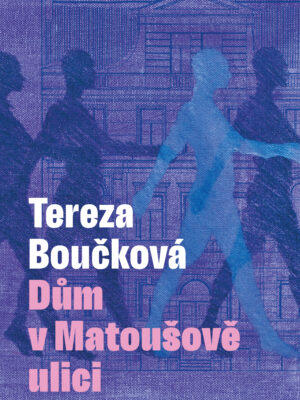
The House on Matoušova Street
In 1927, Eduard Schwarz, a widowed Jewish lawyer, bought a house on Matoušova Street in Prague for himself and his family. In her novel, Tereza Boučková—who lived in the house from birth to adulthood and moved back again a few years ago—presents the nearly 100-year story of the Schwarz family, as well as the other inhabitants of the house, interwoven with the history of the twentieth century. The author traces their fates in real time, allowing the reader to take part in her journey. She writes with emotion, irony and sadness about people whom both monstrous ideologies, Nazism and Communism, wanted to humiliate, rob, imprison or outright murder. And they, each in their own way, tried to resist or escape their fate. But some of them had no chance. Or missed it.
Her research into Jewish families who lived in the house leads her to Auschwitz, to the infamous doctor Joseph Mengele, to the Kindertransport of Sir Nicholas Winton, to name just a few. She also discovers who the biological father of Czech-American director Miloš Forman was and tells the story of the sad fate of actress Zita Kabátová, whose career was ruined by the communist regime. Finally, readers learn that Václav Havel was also a frequent guest in the house, visiting his lover Anna Kohoutová—the author’s mother. Vaclav Havel’s letters, which are reproduced in the book, were all read by the secret police, betrayed by spies posing as friends.
The fates of people against the backdrop of the grand sweep of history, their defiance and defeats, hope and despair, love: this is the story of the House on Matoušova Street. The book also includes the Russian aggression against Ukraine, the attacks on Israel by Hamas in 2023, the recent mass shooting at the Prague Faculty of Philosophy. Tereza Boučková gives us a powerful personal testimony about the tragedies of recent history as well as our contemporary life.
As the author emphasizes, her book is neither a historical novel nor a documentary, but rather her very personal perception of the times and the people.
…the interweaving of history and the present makes for a very accomplished novel—a very contemporary novel about our unresolved past.

